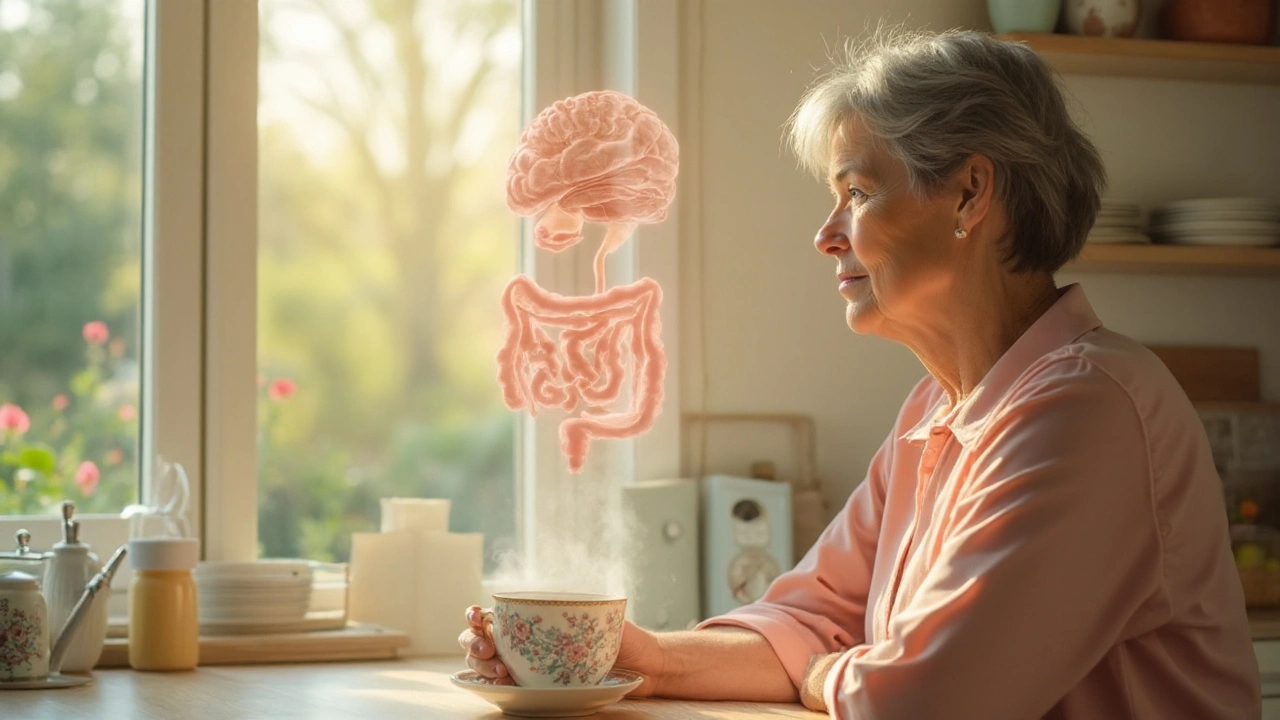IBD Depression: Understanding the Mood Impact of Inflammatory Bowel Disease
If you have Crohn's disease or ulcerative colitis, you might notice days when you feel low for no clear reason. That’s not just in your head – the gut and brain talk to each other, and inflammation in the intestine can mess with your mood. This guide shows you why IBD often brings depression, what signs to watch for, and easy steps you can take right now.
Why IBD Can Lead to Depression
Inflammation releases chemicals called cytokines. Those chemicals travel through the bloodstream and can cross the blood‑brain barrier, changing the way brain cells work. The result? Feelings of sadness, anxiety, or lack of motivation. Add to that chronic pain, unpredictable bathroom trips, and the stress of medical appointments, and it’s easy to see why mood takes a hit.
Another piece of the puzzle is the gut‑brain axis – a two‑way street where nerves, hormones, and microbes exchange signals. When the gut microbiome is out of balance (a common IBD side effect), it can affect serotonin production, a neurotransmitter that helps regulate happiness.
Spotting IBD‑Related Depression
Depression doesn’t always look the same. In the context of IBD, watch for these clues:
- Persistent sadness or emptiness lasting two weeks or more
- Loss of interest in activities you once enjoyed
- Changes in appetite or weight that aren’t explained by your gut symptoms
- Trouble sleeping, either insomnia or oversleeping
- Feeling hopeless about managing your IBD
If you notice a few of these, especially alongside a flare‑up, it’s worth talking to a doctor or mental‑health professional.
Don’t wait for the “perfect” moment. Early help can prevent the depression from getting worse and can even improve your IBD outcomes.
Practical Ways to Manage Mood While Treating Your Gut
1. Keep a symptom‑mood journal. Jot down flare‑ups, foods, meds, and how you feel each day. Patterns often emerge, and the record helps your health team tailor treatment.
2. Stay active, even if it’s gentle. A 10‑minute walk can boost endorphins and support digestion. If a flare limits you, try seated yoga or stretching.
3. Prioritise sleep. Aim for 7‑9 hours. Use a consistent bedtime routine, dim lights, and limit caffeine after lunch.
4. Talk to a therapist. Cognitive‑behavioral therapy (CBT) works well for chronic‑illness depression. Many therapists now offer video sessions, which is handy if you’re dealing with bathroom urgency.
5. Review your meds. Some IBD drugs can affect mood (e.g., steroids). If you notice mood swings after starting a new prescription, ask your gastroenterologist about alternatives.
6. Boost your gut microbes. Probiotic‑rich foods like yogurt, kefir, or fermented veggies can help balance the microbiome. Talk to a dietitian to pick strains that suit your condition.
7. Build a support network. Whether it’s a local IBD group, an online forum, or a trusted friend, sharing experiences reduces isolation and gives you practical tips.
Remember, treating depression isn’t a sign of weakness. It’s a smart move that can make your IBD care more effective.
If you ever feel thoughts of self‑harm, call emergency services or a suicide helpline right away. You don’t have to face this alone.
Managing IBD and depression together takes a team effort, but you have the power to influence both sides. Start small, track your progress, and reach out for help when you need it. Your gut and brain will thank you.
- Celeste Farnell
- 22-09-25
- Health & Medicine
Mesalamine and Mental Health: Managing IBD’s Psychological Impact
Explore how mesalamine affects mental health in IBD patients, the gut‑brain link, and practical ways to cope with anxiety and depression.
Details